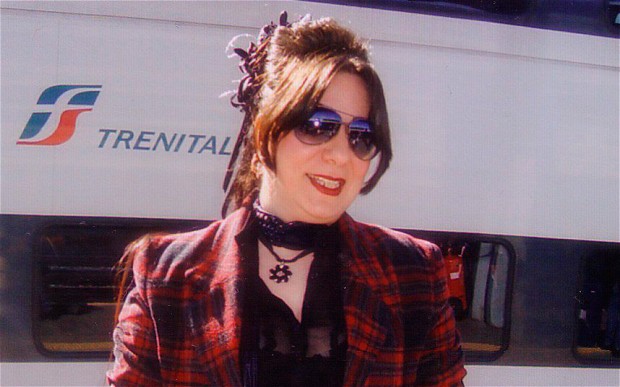
Another dozen people have been arrested and charged for using Facebook while still two dozen others have called in by police questioning about their Facebook activities.
They could be added to the eight people who were sentenced to as long as 20 years in prison last summer for their comments on Facebook.
The shortest sentenced handed down to the eight now lounging in jail was seven years and 91 days.
One of the 20-year sentences was given to a British-Iranian dual national who complained on Facebook that the Islamic regime was too controlling and “too Islamic.”
The latest arrests were announced by a Pasdar cyberspace specialist, Mostafa Alizadeh, on Iranian state television February 1, suggesting the regime wanted to give them maximum publicity. He said 12 Facebook users had been arrested on charges of “spreading corruption, and [carrying out a] mission to change family lifestyles.” He said another 24 citizens had been summoned to answer questions about their Facebook activities.
Alizadeh said that since last September, the Pasdaran have intensified their review of Facebook pages, and that 350 Facebook pages managed by 36 individuals have been identified and 130 of them filtered out.
Alizadeh said the Pasdaran are watching Facebook users and “those who think this space is safe for them must cease their activities.”
He complained of pages that contain “pornographic and immoral” content, aiming to “reduce sensitivity about sacred elements of religion.” As examples of “immoral” content, Alizadeh cited photos taken at Iranian weddings.
Referring to alleged “jokes about the sacred” on these Facebook pages, he said, “The mission of these pages is to complain and whine about any issue that happens in the country in a joke format. Anti-revolutionary networks take advantage of this whining, and they use it as a tool for mass distribution of rumors.”
Alizadeh said all 12 of the new detainees are male, they are from various provinces, and their average age is 25.
Last July, an appeals court upheld the sentences handed down in April to the first eight people convicted for using Facebook.
One of the harshest sentences went to an Iranian-British dual national woman, Roya Saberinejad-Nobakht, who was arrested late in 2013 while visiting her relatives.
Nobakht was 47 years old and had been living in central England near Manchester with her husband, part-time chef Daryoush Taghipour, also 47, for about six years.
She was one of many expatriates who were arrested and jailed during visits to Iran. Currently there are at least four other expatriates in Iranian prisons—Amir Hekmati and Saeed Abedini from the United States and Hossain Derakhshan and Saeed Malekpour from Canada.
Friends told British reporters that Roya is a housewife and part-time student who had never been politically active. She traveled to Iran to visit family and friends for three weeks. Two weeks into the trip, she made a side-visit to Shiraz and was arrested as she arrived at the airport there, her husband told the Manchester Evening News.
He believes the arrest was over comments she made on an Internet chat forum and to friends on Facebook about the Iranian government being too controlling and “too Islamic.”
The International Campaign for Human Rights in Iran (ICHRI) said the harsh sentences handed down by Judge Moham-mad Moghiseh were “clearly intended to spread fear among Internet users.”
According to the opposition Kaleme website, six men and two women were arrested in 2013 by the cyber crimes unit of the Pasdaran. Their names and sentences are as follows:
• Roya Saberinejad-Nobakht, 20 years.
• Amir Golestani, 20 years and one day.
• Masud Ghasemkhani, 19 years, 91 days.
• Fariborz Kardarfar, 18 years, 91 days.
• Masud Seyed Talebi, 15 years, one day.
Amin (Farid) Akramipour, 13 years.
• Mehdi Reyshahri, 11 years.
• Naghmeh Shahsavandi-Shirazi, 7 years, 91 days.
They were charged with “propaganda against the state,” “insulting the Supreme Leader,” “assembly and collusion against national security,” “blasphemy,” “creating public anxiety” and “spreading falsehoods.” The charges were based on their use of Facebook, which is officially banned in the Islamic Republic.
ICHRI said all but one the eight received sentences in excess of that allowed under Iranian law. “Using Article 134 of the new Islamic Penal Code,” ICHRI said, “the judge has ruled for the maximum punishment for each of the charges combined, failing to observe that the same law now limits punishment to the highest sentence among the charges. Under Article 134, the maximum sentence for the suspects should have been 7 1/2 years, which is the maximum punishment for the charge of ‘acting against national security’.”
But the Islamic Republic News Agency said the appeals court upheld all the sentences.






















